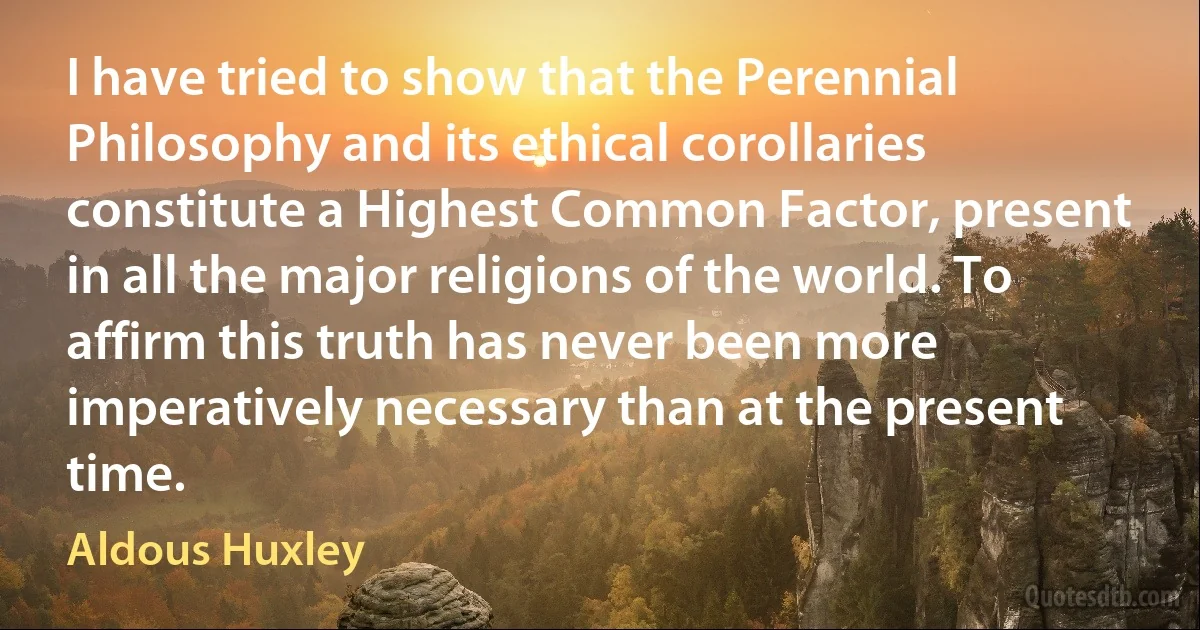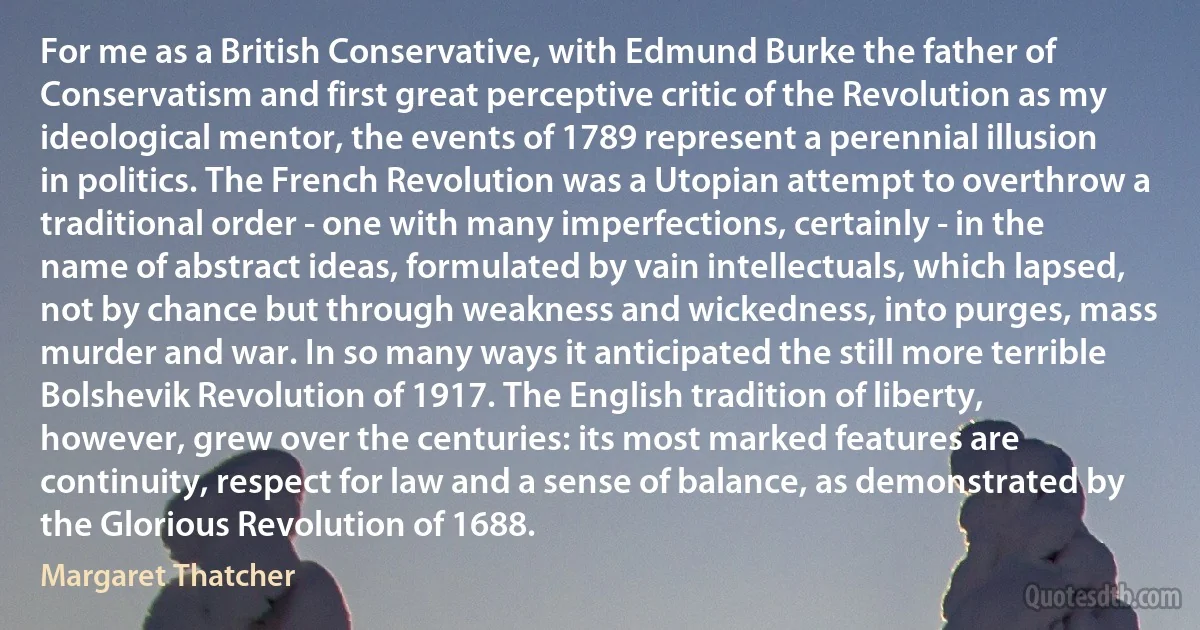Perennial Quotes - page 4
The very fact that it is set down at a certain time by a certain writer, using this or that language, automatically imposes a certain sociological and personal bias on the doctrines so formulated. It is only in the act of contemplation when words and even personality are transcended, that the pure state of the Perennial Philosophy can actually be known. The records left by those who have known it in this way make it abundantly clear that all of them, whether Hindu, Buddhist, Hebrew, Taoist, Christian, or Mohammedan, were attempting to describe the same essentially indescribable Fact.

Aldous Huxley
I am now even more persuaded of the urgent need to study why Socrates was accused. The dislike of philosophy is perennial, and the seeds of the condemnation of Socrates are present at all times, not in the bosoms of pleasure-seekers, who don't give a damn, but in those of high-minded and idealistic persons who do not want to submit their aspirations to examination.

Allan Bloom
Instead of entertaining visions of a final victory of reason over magic and ignorance, we have to reconcile ourselves to the fact that the norms and ideals which permit the advancement of knowledge have to be defended in every generation against new enemies, who reappear like the heads of the Hydra as soon as others are decapitated, and who employ ever-new labels, catchwords and slogans to play on the perennial weaknesses of mankind. Whatever happens in the instrumental exact sciences, we can be sure that in matters where intellectual and moral considerations mesh, the struggle between the forces of light and the forces of darkness will never end.

Stanislav Andreski
Those who have in any sense realised that God is around them, in them, and in everything, will be able to understand how a place or an object may become "sacred" by a slight objectivisation of this perennial universal Presence, so that those become able to sense Him who do not normally feel His omnipresence... This is the rationale of places of pilgrimage, of temporary retreats into seclusion; the man turns inward to seek the God within him, and is aided by the atmosphere created by thousands of others, who before him have sought the same in the same place....The effect produced will, of course, vary with the relative strengths of the vibrations... the laws of vibration are the same in the higher worlds as in the physical, and thought vibrations are the expression of real energies.

Annie Besant
Sukeforth went to Pittsburgh and consulted with Branch Rickey, who had moved from the Dodgers to the Pirate organization and was engaged in a "five-year plan" to recruit young players for the perennial losers. A few days later, Sukeforth went to Montreal to see more of Roberto. That night, while having dinner with Max Macon, the manager, he said with a mischievous grin, "I notice you haven't been playing Clemente much lately." Before Macon could reply, Sukeforth said, "You might as well use him. He's better than anyone we have in Pittsburgh right now. We're going to finish last, and we're going to draft him number one." Then rising from the table, Sukeforth waved and said, "Take care of our boy."

Roberto Clemente
If in this book harsh words are spoken about some of the greatest among the intellectual leaders of mankind, my motive is not, I hope, the wish to belittle them. It springs rather from my conviction that, if our civilization is to survive, we must break with the habit of deference to great men. Great men may make great mistakes; and as the book tries to show, some of the greatest leaders of the past supported the perennial attack on freedom and reason. Their influence, too rarely challenged, continues to mislead those on whose defence civilization depends, and to divide them. The responsibility of this tragic and possibly fatal division becomes ours if we hesitate to be outspoken in our criticism of what admittedly is a part of our intellectual heritage. By reluctance to criticize some of it, we may help to destroy it all.

Karl Popper
The original scriptures of most religions are poetical and unsystematic. Theology, which generally takes the form of a reasoned commentary on the parables and aphorisms of the scriptures, tends to make its appearance at a later stage of religious history. The Bhagavad-Gita occupies an intermediate position between scripture and theology; for it combines the poetical qualities of the first with the clear-cut methodicalness of the second... one of the clearest and most comprehensive summaries of the Perennial Philosophy ever to have been made. Hence its enduring value, not only for Indians, but for all mankind.

Aldous Huxley


